Race and politics in Mississippi
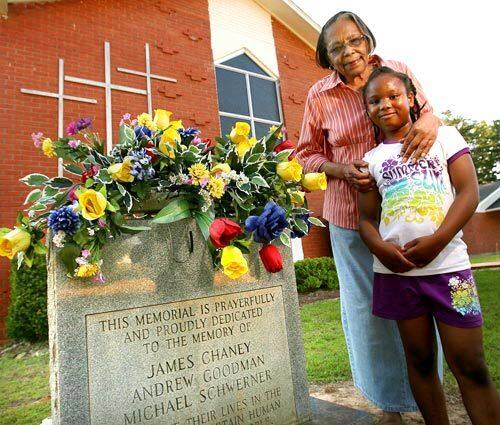
Sylvia Campbell, 74, and her great-granddaughter Haleigh Rolling, 6, stand in front of Mt. Zion United Methodist Church in Philadelphia, Miss. The predominantly black church was burned down in June 1964; three civil rights workers who came to investigate were murdered. Now, Philadelphia’s county has cast the majority of its votes to make Barack Obama the nation’s first black president. (Michael E. Palmer / For The Los Angeles Times)
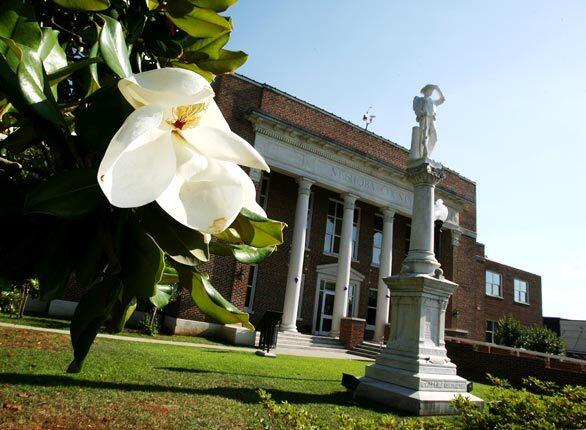
A Confederate memorial stands in front of the Neshoba County courthouse in Philadelphia, Miss. The county was known as “Bloody Neshoba” during the civil rights era. (Michael E. Palmer / For The Los Angeles Times)
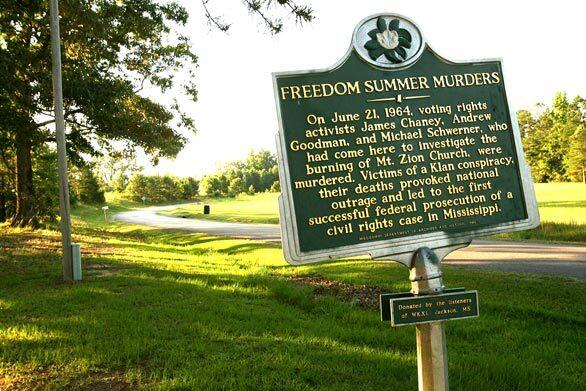
A marker at Mt. Zion United Methodist Church honors James Chaney, Andrew Goodman and Michael Schwerner, the three civil rights workers slain in June 1964. Some here predict Obama will have a hard time winning over Mississippi’s white population. (Michael E. Palmer / For The Los Angeles Times)
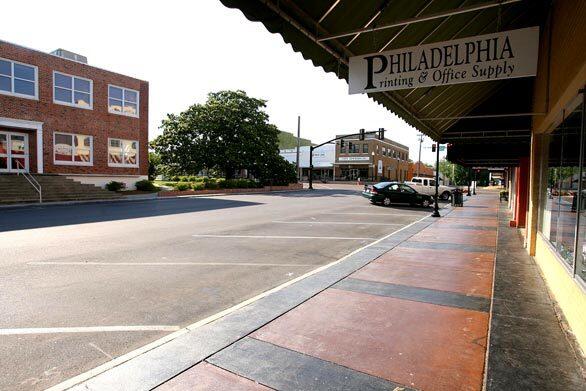
Barack Obama’s apparent clinching of the Democratic presidential nomination comes as Philadelphia, Miss., prepares to mark the 44th anniversary of the civil rights killings that have seared the 7,000-population town into the nation’s memory. (Michael E. Palmer / For The Los Angeles Times)
Advertisement
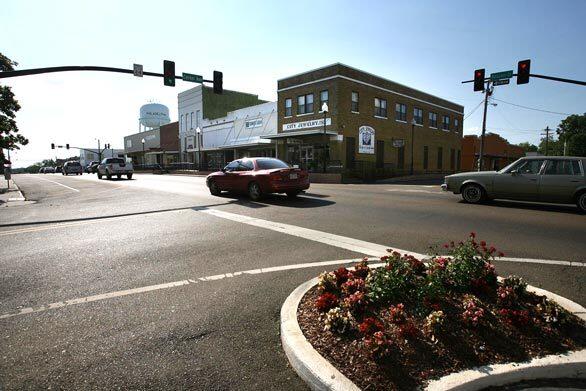
Racial tension is more subtle today in Philadelphia, Miss., but it persists. Of Barack Obama’s success, black resident Sylvia Campbell says, “I know Mississippians. Barack Obama will never change the uneducated whites from the South. I dont care what he does.” (Michael E. Palmer / For The Los Angeles Times)







